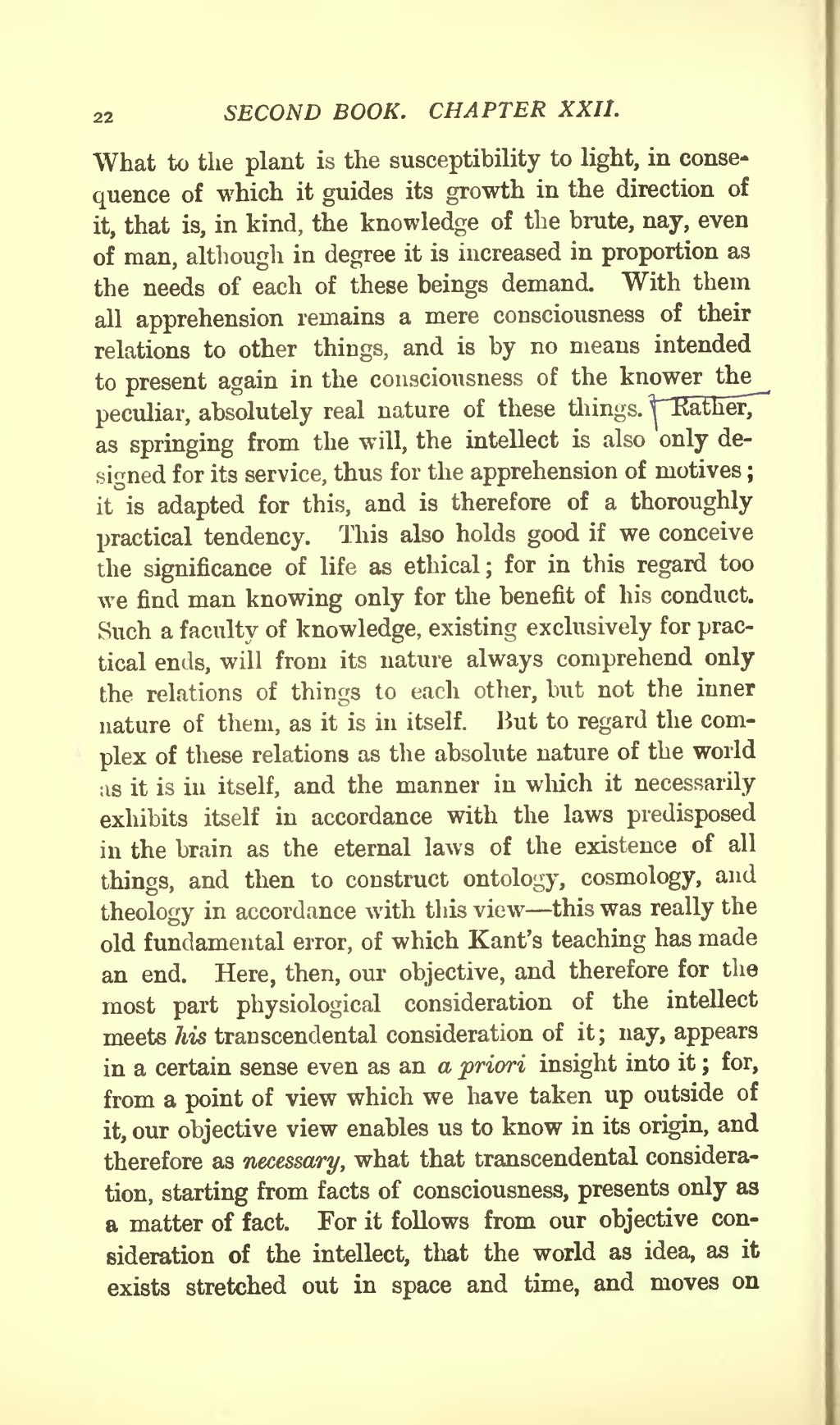What to the plant is the susceptibility to light, in consequence of which it guides its growth in the direction of it, that is, in kind, the knowledge of the brute, nay, even of man, although in degree it is increased in proportion as the needs of each of these beings demand. With them all apprehension remains a mere consciousness of their relations to other things, and is by no means intended to present again in the consciousness of the knower the peculiar, absolutely real nature of these things. Rather, as springing from the will, the intellect is also only designed for its service, thus for the apprehension of motives; it is adapted for this, and is therefore of a thoroughly practical tendency. This also holds good if we conceive the significance of life as ethical; for in this regard too we find man knowing only for the benefit of his conduct. Such a faculty of knowledge, existing exclusively for practical ends, will from its nature always comprehend only the relations of things to each other, but not the inner nature of them, as it is in itself. But to regard the complex of these relations as the absolute nature of the world as it is in itself, and the manner in which it necessarily exhibits itself in accordance with the laws predisposed in the brain as the eternal laws of the existence of all things, and then to construct ontology, cosmology, and theology in accordance with this view – this was really the old fundamental error, of which Kant's teaching has made an end. Here, then, our objective, and therefore for the most part physiological consideration of the intellect meets his transcendental consideration of it; nay, appears in a certain sense even as an a priori insight into it; for, from a point of view which we have taken up outside of it, our objective view enables us to know in its origin, and therefore as necessary, what that transcendental consideration, starting from facts of consciousness, presents only as a matter of fact. For it follows from our objective consideration of the intellect, that the world as idea, as it exists stretched out in space and time, and moves on
